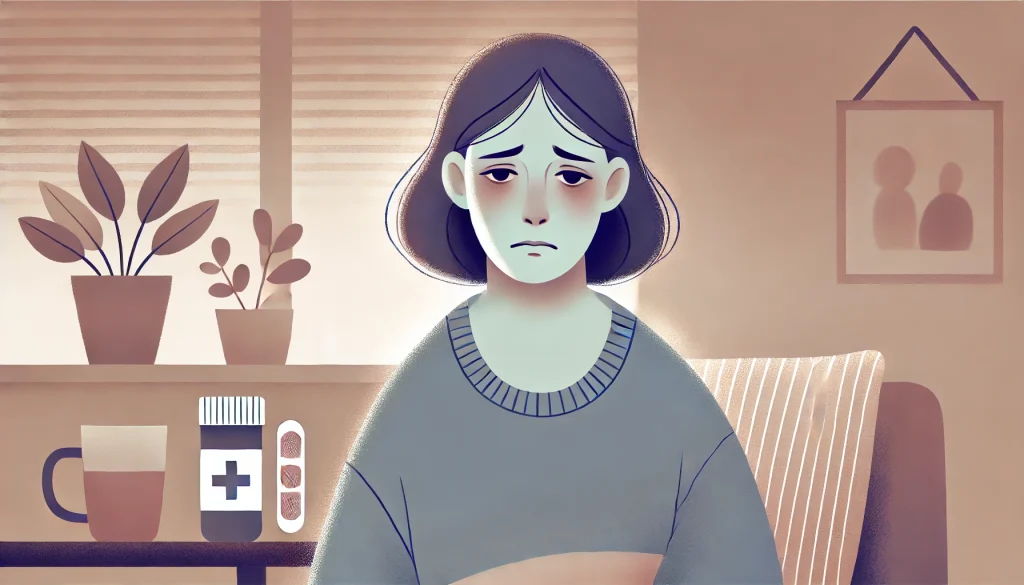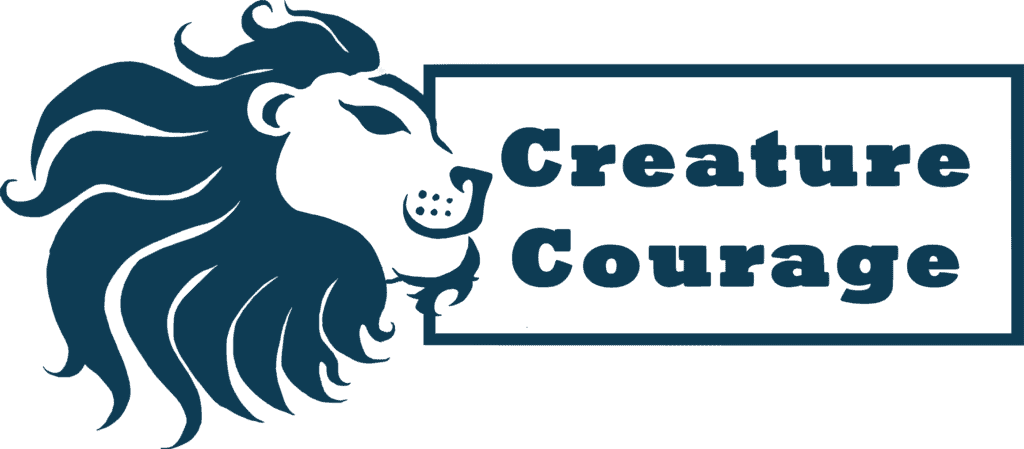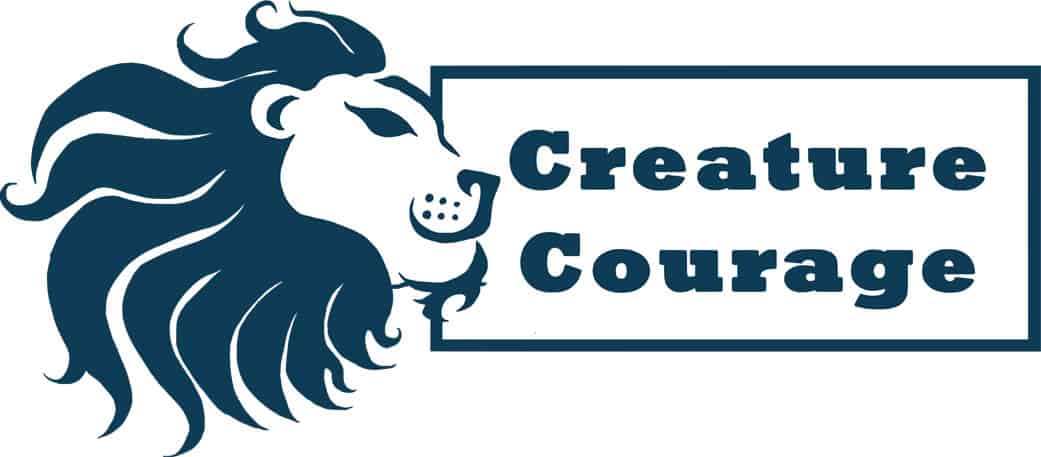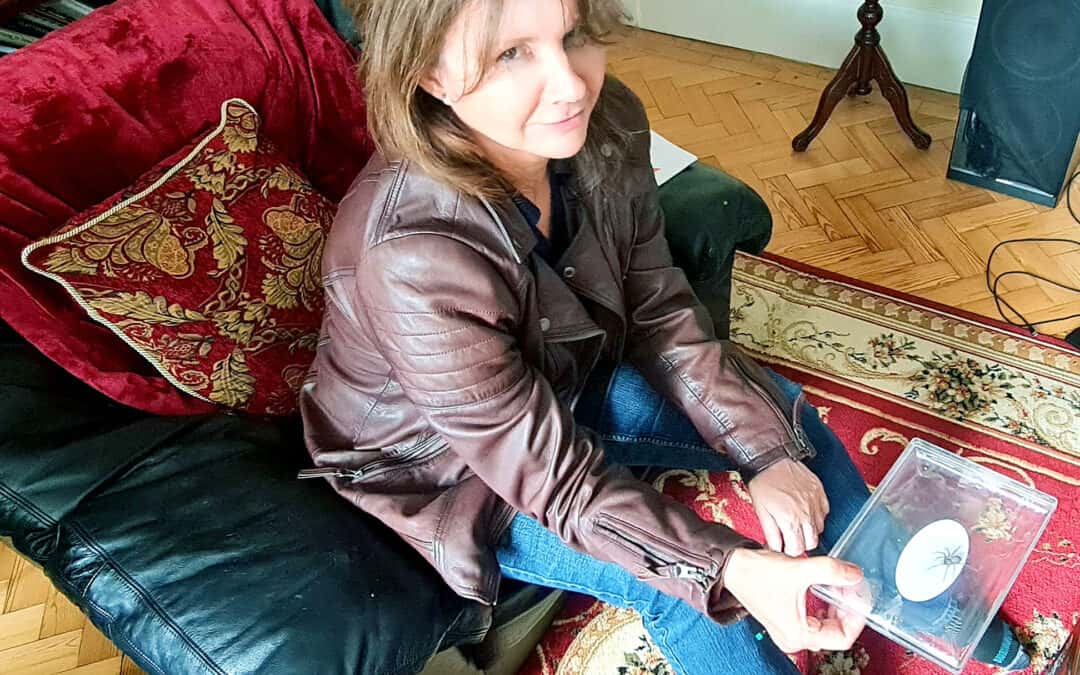The True Impact of Arachnophobia On Mind & Body
Do you suffer from arachnophobia as well as a chronic illness? Continue to read to find out how important it is to get over your fear of spiders. Overcoming your fear will improve the quality of your life both mentally and physically.
Arachnophobia, the fear of spiders, is one of the most prevalent phobias globally. In the UK alone, it affects around 11 million people (Anthony Devlin/PA). For many, this fear triggers extreme anxiety that can take hours to subside. The constant worry about encountering spiders anywhere and anytime exacerbates this anxiety, particularly during certain times of the year. This perpetual state of fear not only affects mental health but also has broader implications for overall well-being.
The impact of arachnophobia extends far beyond a simple fear response. Those suffering from this phobia often find themselves in a constant state of heightened alertness. This chronic anxiety can lead to numerous health issues, including sleep disturbances, increased stress levels, and weakened immune systems. As a result, individuals with arachnophobia may experience a lower quality of life due to their continuous struggle with this fear. This blog aims at exploring the connection of having arachnophobia on physical health both from personal and other case studies.
The Link Between Anxiety and Chronic Illness
Anxiety is a significant aggravator for conditions like long COVID and other chronic illnesses. When anxiety triggers the release of histamine and other chemicals in the body, it can lead to inflammation, increased fatigue, and pain. These chemicals, while beneficial in normal amounts, can be harmful when released excessively due to constant anxiety. Managing anxiety is crucial for recovery and wellness.
Research has shown that chronic anxiety can weaken the body’s ability to fight off infections and recover from illnesses. The Cleveland Clinic expresses it very well on one of their feature pages on chronic illnesses.
“Over time, when your body stays in chronic stress, it can get used to having too much cortisol in your blood. And this opens the door for more inflammation,” Dr. Calabrese, immunologist, explains.
Chronic stress significantly reduces your body’s lymphocytes, the white blood cells vital for fighting infections. Lower lymphocyte levels increase your risk of contracting viruses like the common cold and cold sores, leading to “stress-induced sickness.” With a weakened immune system, your body struggles to combat infections and diseases effectively.
Additionally, elevated stress levels can trigger depression and anxiety, contributing to higher inflammation levels. Over time, persistent high inflammation indicates an overworked and exhausted immune system, impairing its ability to protect you properly.
For individuals with long COVID and other chronic illnesses, this means that managing anxiety becomes even more critical. By reducing anxiety levels, patients can potentially alleviate some of the symptoms associated with long COVID, such as persistent fatigue and chronic pain. Therefore, addressing phobias like arachnophobia can play a vital role in improving overall health and aiding recovery from chronic conditions.

Addressing Arachnophobia: A Path to Wellness
As mentioned, overcoming arachnophobia can significantly boost overall health and resilience by getting rid of the constant anxiety. Fortunately, effective treatment does not require years of therapy. The Spider Courage Experience ran by Creature Courage, offers a comprehensive and efficient approach. This programme integrates various therapies, including cognitive behavioural therapy (CBT), art therapy, imagination exercises, neuro-linguistic programming (NLP), hypnotherapy, education, and immersive therapy, into a single session. This holistic method ensures a high success rate, making Creature Courage a leader in treating animal phobias in the UK.
The multi-faceted approach of Creature Courage recognises that different individuals respond to different types of treatments. By combining several therapeutic techniques, the programme addresses the unique needs of each participant. This personalised approach not only helps individuals overcome their fear of spiders but also equips them with tools to manage anxiety in other areas of their lives.
“It doesn’t make sense to get a person to simply be more positive about just one area of their life such as the animal they fear. If they are still caught in negative worry cycles about other things in their lives, they will breed the phobia back into their mind. They need to find overall positivity and courage. We give people the tools to liberate their minds and their lives. This therapy is also fun so really a win-win for those wishing to eradicate this debilitating phobia.” founder Britain Stelly emphasizes.
Holistic Approaches to Treating Phobias
Creature Courage’s holistic approach considers the individual’s overall mental health and life choices. Techniques taught during their workshops extend beyond treating the phobia, helping clients manage general anxiety and build courage in various situations. Britain Stelly, the founder, emphasizes the importance of finding positivity and courage in all aspects of life to prevent the recurrence of phobias.
This comprehensive treatment strategy is designed to create lasting change. Participants learn to reframe their thoughts and behaviours, developing a more positive and courageous mindset. By addressing the root causes of their anxiety, individuals can break free from the cycle of fear and develop healthier habits around anxiety. The ultimate goal is to empower participants to live fuller, more confident lives, free from the debilitating effects of phobias.
Personal Experiences: Overcoming Anxiety and Long COVID
Stelly herself is a long COVID sufferer who has experienced the devastating effects of anxiety on her health. Before contracting COVID-19 in April 2020, she was in perfect health. Now, she often struggles to get out of bed. Her experience underscores the importance of addressing anxiety, particularly for those with chronic health conditions. Stelly collaborates with Jane Green to highlight the connection between mental and physical health.
Stelly’s personal journey with long COVID has given her a unique perspective on the importance of mental health in the recovery process. Her firsthand experience with the challenges of chronic illness and anxiety has driven her to help others overcome their phobias and improve their overall well-being. By sharing her story, Stelly hopes to inspire others to seek treatment and take control of their mental health.
The Impact of Phobias on Chronic Conditions
Jane Green, who is autistic and has Ehlers-Danlos syndromes (EDS), a connective tissues disorder, has long struggled with the physical effects of anxiety triggered by her spider phobia. Her extreme reactions to encountering spiders significantly impacted her health, causing increased fatigue, pain, and inflammation.
‘I had been known to jump out of my car and leave it running on the road due to seeing a large spider inside the car. In the autumn, when we see more spiders, I am hyper-vigilant. This anxiety affected my whole body, especially with increased fatigue, pain and inflammation. I was constantly worried when I might see a spider.
Green’s liberation from this phobia after doing the Spider Courage Experience, has profoundly improved her quality of life. This has demonstrated to her the importance of managing anxiety for those with co-occurring conditions.
‘I feel so much better being back in control of my anxiety around spiders. Anxiety for people with EDS and other co-occurring conditions can mean an overload of chemicals and enzymes, sometimes leading to allergic reactions or even anaphylactic attacks, so getting in control of my phobia was incredibly important! I encourage anyone with a spider phobia to seek treatment for your overall quality of life.’ Green expressed with enthusiasm.
Green’s story highlights the interconnectedness of mental and physical health. For individuals with chronic conditions like EDS, managing anxiety is essential to maintaining overall well-being. By overcoming her fear of spiders, Green has been able to reduce her anxiety levels and improve her physical health. Her experience serves as a powerful reminder of the benefits of addressing and treating phobias.
A Case Study of How Mind and Body Are Connected
Green found Creature Courage in a very unique way. A few months before seeking treatment, she had recently taken part in an experimental trial testing a novel theory called ADIE to reduce anxiety in autistic adults. This looked at how accurate a group of autistic adults were at knowing about their inner senses. One of these key inner senses is called the interoception sense. This sense helps us to know what is happening inside our bodies if we are too hot, cold, hungry or tired or anxious. So, the idea was to help people become more aware of their own heartbeat in order to effectively ‘calm their emotions’.
In 2017 Professor Garfinkel, a cognitive neuroscientist at UCL designed an experiment using the concept of interoception to treat spider phobias for autistic adults with computer-simulated spiders. It was found that using interoception techniques helped 31% more people recover from a spider phobia as opposed to 16% in the control group.
‘Our fear response and feelings of anxiety are closely linked to changes in our body, including the perception of these changes, such as the pounding of our heart. Good insight into these internal bodily signals, a process known as interoception, can provide early access to these signals, allowing us to regulate them before they start to spiral. Calming down our bodies can also serve to calm down our minds.’ Professor Garfinkel remarks.

Promoting Mind-Body Connection for Better Health
Green’s experience with this trial really helped her understand how much mind and body are connected with stress and physical health. This inspired her to get control over the anxiety caused by her spider phobia. She then sought treatment with Creature Courage. After dramatically changing her fear in just one day, this really inspired her to spread the message that hope is possible.
The mind-body connection is crucial for overall health, particularly for those with long COVID and chronic illnesses. Green’s collaboration with Creature Courage aims to spread awareness about the importance of this connection. Understanding and managing internal bodily signals can help individuals control anxiety and improve their overall well-being.
Fostering a strong mind-body connection involves recognising the ways in which mental and physical health are intertwined. By addressing the root causes of anxiety and developing healthier coping mechanisms, individuals can enhance their overall quality of life. The holistic approach of Creature Courage provides participants with the tools and techniques they need to achieve this balance.

Conclusion
Overcoming arachnophobia is not just about eliminating a fear; it’s about improving overall mental and physical health. By addressing anxiety and understanding the mind-body connection, individuals can significantly enhance their quality of life. Creature Courage’s holistic approach provides an effective solution for those struggling with spider phobia, offering hope and healing for a healthier future.
Phobias like arachnophobia can have far-reaching effects on an individual’s health and well-being. However, with the right treatment and support, it is possible to overcome these fears and improve one’s quality of life. The comprehensive approach offered by Creature Courage empowers individuals to conquer their phobias and develop the resilience needed to face life’s challenges with confidence. As we continue to navigate the ongoing stress with our cost of living crises, addressing anxiety and phobias becomes increasingly important. By prioritising mental health and fostering a strong mind-body connection, we can build a foundation for long-term wellness and resilience.
Do you have a fear of spiders or another animal? Get in touch today if you want to find out more on how Creature Courage can help you .

Additional Resources
Further Information:
Jane Green is founder and Chair of the multi-award winning Sussex Ehlers-Danlos Syndromes and Hypermobility Disorders (SEDS) and advocates for hypermobility and autistic issues in health, education, social care, transport accessibility and employment.
Contact: https://www.sussexeds.com
Email: info@sussexeds.com
Twitter: @JGjanegreen
For those interested in learning more about the impact of anxiety on chronic illnesses and the benefits of holistic treatments, here are some recommended resources:
- Mind.org.uk: A leading mental health charity providing information and support on various mental health issues, including anxiety and phobias.
- NHS.uk: The National Health Service website offers comprehensive information on mental health conditions, treatments, and services available in the UK.
- Anxiety UK: A national charity dedicated to supporting those living with anxiety, providing resources, support groups, and helplines.
- Healthline: An online health resource offering articles and information on mental health, chronic illnesses, and holistic treatment options.
- British Psychological Society: A professional body representing psychologists in the UK, offering resources and research on mental health and therapeutic approaches.
- The Cleveland Clinic
By exploring these resources, individuals can gain a deeper understanding of the connections between mental and physical health and find additional support for managing anxiety and phobias.
References:
Schmitt, WJ; Müri, RM (2009). “Neurobiologie der Spinnenphobie”. Schweizer Archiv für Neurologie. 160 (8): 352–355. Archived from the original on 23 August 2016.
www.sciencedirect.com/science/article/pii/S2589537021003229
Interoceptive training to target anxiety in autistic adults (ADIE): A single-center, superiority randomized controlled trial
Lisa Quadt, Sarah N Garfinkel, James S Mulcahy, Dennis EO Larsson, Marta Silva, Anna-Marie Jones, Clara Strauss, Hugo D Critchley (2021)
‘Listening to Your Year Might Be The Key To Conquering Anxiety’
Wired https://www.wired.co.uk/article/sarah-garfinkel-interoception
Accessed 1.9.2021
Beyond Bones: The relevance of variants of connective tissue (hypermobility) to fibromyalgia, ME/CFS and controversies surrounding diagnostic classification: an observational study
Jessica A Eccles, Beth Thompson, Kristy Themelis, Marisa L Amato, RobynStocks, Amy Pound, Anna-Marie Jones, Zdenka Cipinova, Lorraine Shah-Goodwin, Jean Timeyin, Charlotte R Thompson, Thomas Batty, Neil A Harrison, Hugo D Critchley, Kevin A Davies
Clinical Medicine Jan 2021, 21 (1) 53-58; DOI: 10.7861/clinmed.2020-0743
Watson DR, Garfinkel SN, Gould van Praag C, Willmott D, Wong K, Meeten F, Critchley HD. Computerized Exposure Therapy for Spider Phobia: Effects of Cardiac Timing and Interoceptive Ability on Subjective and Behavioral Outcomes. Psychosom Med. 2019 Jan;81(1):90-99. doi: 10.1097/PSY.0000000000000646. PMID: 30300237.
https://pubmed.ncbi.nlm.nih.gov/30300237/ accessed 1.9.2021

